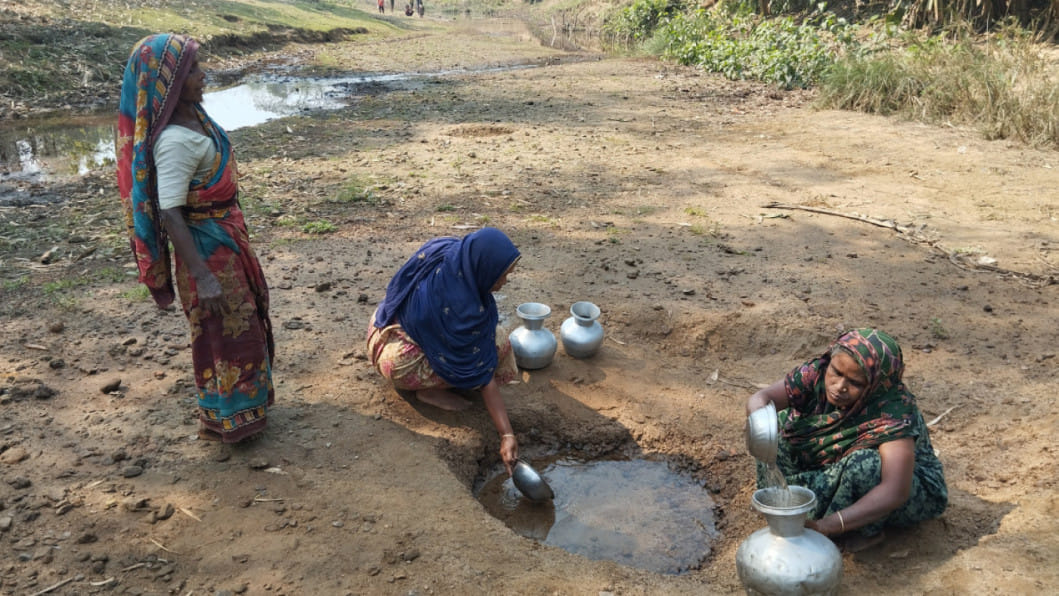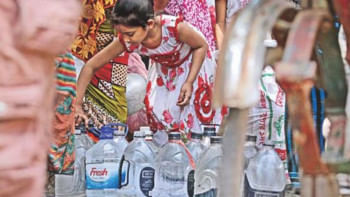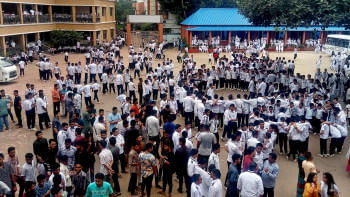Exploring financing and sustainability mechanisms for WASH sector

Imagine a small village in a remote part of the world, where the nearest clean water source is miles away. Young children wake up at dawn every morning, walking miles with empty containers instead of books and pencils. These walks take hours, through harsh terrains, all to fetch water.
Like many other regions of the world, in coastal Bangladesh, this imagination turns into harsh reality. Sahana Akhtar Rimi, a 13-year-old from Koyra, Khulna, recalls, "Every day my mother fetches water while I care for my siblings. When my mother had to stay home to care for my sick father, I took on the responsibility. I was often late for school or even unable to attend. We often stood in long queues and sometimes returned empty-handed. Even at school, there was no safe drinking water. Without a safe source, my family used pond water, which made us sick with diarrhoea and dysentery."
According to the World Health Organization (WHO), 2.2 billion people in the world do not have access to safely-managed drinking water services, and 4.2 billion people lack safely managed sanitation services. Globally in 2024, 176.6 million people needed humanitarian water, sanitation, and hygiene (WASH) assistance, but only 48 million received support, with just 37 percent of the required funding. For 2025, the sector will require $3.8 billion in funding, but due to cuts in aid, this percentage is expected to decline significantly.
According to UNICEF, diarrheal diseases from poor WASH services are the second major cause of death for children under five. In 2021, diarrhoea caused about nine percent of deaths in this age group, translating to over 1,200 daily or about 444,000 yearly deaths, despite simple treatment solutions. Further, poor sanitation and water supply result in economic losses estimated at $260 billion annually in developing countries, or 1.5 percent of their GDP, increasing health and medical costs, time consumption, and consequently, affecting income-generating and livelihood opportunities.
Recent global fund cuts further exacerbate the existing funding crisis for life-saving WASH services, but every crisis can also create opportunities, as Einstein suggested. This article explores some alternative and innovative mechanisms and opportunities for enhancing the finance and sustainability of life-saving WASH services, amid the global aid cuts.
Encouraging charitable giving for life-saving services
Statistic shows that clean water and sanitation prevent waterborne diseases, which kill millions annually. Charitable organisations can use these statistics about the need for improved WASH services to inspire action and attract support by emphasising their life-saving mission and vision. Duncan Green proposed religious giving as an alternative to aid dependency, suggesting that zakat is an efficient fundraising method in countries with significant Muslim populations. Similarly, other religious charity relief can contribute to strengthening lifesaving services. Philanthropic funding and religious giving, which is often more flexible than state-sponsored aid, can address urgent needs effectively and enable sustainable services aimed at reducing increasing funding gaps.
Financing WASH sector through the climate finance channel
Investing in resilient WASH infrastructure and services is a potential climate adaptation measure in climate-vulnerable countries, and accordingly, WASH infrastructures and services are key areas of climate-induced loss and damage. Thus, the WASH sector requires financing both from adaptation and loss and damage funds under the global climate finance mechanisms and commitments agreed at the Conference of the Parties (COP).
Financing integrated life-saving interventions
Financing a one-stop service centre by integrating all lifesaving services like health, nutrition, food security and WASH can reduce public health risks and prevent health hazards, ensuring the cost-effectiveness and efficiency of services. WASH services and healthcare must function in parallel. When WASH services are disrupted, it places a greater burden on primary healthcare services, which cannot address health hazards alone. WASH services act as preventive measures to reduce health risks, supporting the overall effectiveness of healthcare provision.
Strengthening the blended funding mechanism
Compared to traditional funding, public-private partnerships (PPPs) often lead to more efficient service provision and innovation. PPPs can bring much-needed efficiencies in service delivery. They often result in lower costs, faster implementation of projects, and improved overall service quality. Likewise, the private sector can enhance its business impact by actively participating in WASH funding and interventions, leveraging extensive outreach to WASH service recipients. Banks and financial institutions, as key industry players, play a crucial role in financing WASH initiatives, expanding their business and services to a broader population. Further, strengthening corporate responsibility frameworks can foster greater involvement from private and corporate entities, driving local engagement in sustainable WASH solutions.
Community-based funding and interventions
Community-based financing is another key catalyst for improving and sustaining access to WASH services. When communities contribute and take part in managing WASH services and infrastructures, it builds ownership and ensures long-term impact and sustainability. Spreading the message that every dollar invested in WASH brings a fourfold return helps households and communities see the value of investing. By sharing responsibility and co-financing, communities help make WASH services more reliable, reduce health risks, and lower healthcare costs. Further, local entrepreneurship development and engaging local vendors and markets would strengthen the WASH services at the local level, even in humanitarian settings.
Data and knowledge management
Effective data and knowledge management would be instrumental for securing and promoting alternative financing and sustainability mechanisms at a local level. Data-driven storytelling for engaging the private sectors and effective awareness messages for community engagement would contribute to promoting blended and home-grown financing, ensuring the sustainability of WASH services and interventions. Leveraging the existing research and evidence, innovating low-cost and affordable technology, and nature-based solutions would facilitate long-term impact and sustainability of WASH interventions at local level, utilising available funding and resources effectively and efficiently. Further, the WASH sector has developed valuable resources and a global pool of experts over time. Despite funding cuts, these assets can sustain WASH interventions in collaboration with the public and private sectors with limited resources and funding.
Mohammad Omar Faroque is a research and development professional. He can be reached at [email protected].
Views expressed in this article are the author's own.
Follow The Daily Star Opinion on Facebook for the latest opinions, commentaries and analyses by experts and professionals. To contribute your article or letter to The Daily Star Opinion, see our guidelines for submission.

 For all latest news, follow The Daily Star's Google News channel.
For all latest news, follow The Daily Star's Google News channel. 




Comments